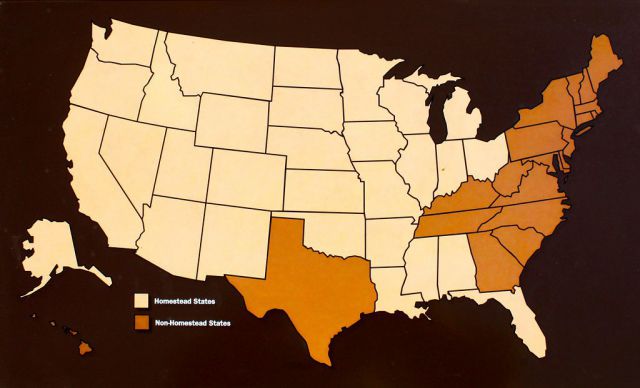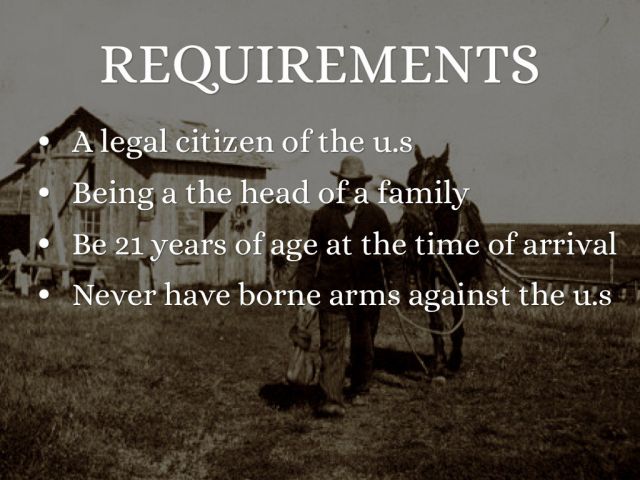
2023-07-05 -- Ernest Hancock & James Corbett (The Corbett Report) MP3&4
Hour 1 - 3
LIVE STREAM ON FREEDOM'S PHOENIX, FLOTE, and DLIVE
Front page of Freedom's Phoenix (player only active when we are live, and it's located under Roberts & Roberts Banner ad)
https://dlive.tv/ErnestHancock
PODCASTS
1 - James Corbett (Corbett Report) on #Solutions, world news, how to defeat globalism, etc...
James's previous interview HERE
-30-
PODCAST 1
James Corbett
The Corbett Report - CorbettReport.Com
The Corbett Report is an independent, listener-supported alternative news source. It operates on the principle of open source intelligence and provides podcasts, interviews, articles and videos about breaking news and important issues from 9/11 Truth and false flag terror to the Big Brother police state, eugenics, geopolitics, the central banking fraud and more.
James Corbett presents at TEDxGroningen
The Corbett Report is edited, webmastered, written, produced and hosted by James Corbett.
James Corbett has been living and working in Japan since 2004. He started The Corbett Report website in 2007 as an outlet for independent critical analysis of politics, society, history, and economics. Since then he has written, recorded and edited thousands of hours of audio and video media for the website, including a podcast and several regular online video series. He is the lead editorial writer for The International Forecaster, the e-newsletter created by the late Bob Chapman.
His work has been carried online by a wide variety of websites and his videos have garnered over 50,000,000 views on YouTube alone. His satirical piece on the discrepancies in the official account of September 11th, "9/11: A Conspiracy Theory" was posted to the web on September 11, 2011 and has so far been viewed nearly 3 million times.
For more information about Corbett and his background, please listen to Episode 163 of The Corbett Report podcast, Meet James Corbett:
Episode 163 – Meet James Corbett
JAMES CORBETT'S LATEST VIDEOS - https://www.corbettreport.com/category/videos/...
JAMES CORBETT'S LATEST ARTICLES - https://www.corbettreport.com/category/articles/...
James's previous interviews on the Declare Your Independence with Ernest Hancock Radio Show:
https://www.freedomsphoenix.com/Guest-Page.htm?No=01092
SHOW NOTES AND REFERENCES:
1. https://www.corbettreport.com/how-to-really-defeat-globalism/
How To REALLY Defeat Globalism
Corbett • 04/11/2015 • 8 Comments
In this week's subscriber newsletter we examine the phoney nationalism/globalism paradigm and how it was cultivated in the population through the school system. Recommended reading and listening include killer robots for military uses, Tocqueville's America, Jeffrey Tucker on P2P and more.
This content is restricted to site members. If you are an existing user, please log in. New users may register here.
vol 5 issue 14 (April 11, 2015)
THE INTERNATIONAL FORECASTERglobal4How To REALLY Defeat Globalism
by James Corbett
corbettreport.com
April 11, 2015
Last week in this column we examined the push toward the formation of a North American Union and how this fits into the powers-that-shouldn't-be's longer-term agenda to merge these regional power blocs into a de facto world government. The premise is simple enough. The banksters and their cronies want what every tyrant throughout history has wanted: world domination. To achieve that end, they are working feverishly to undermine the nation-states that have served as the building blocks of global geopolitics for centuries. The answer, too, seems perfectly simple. If the globalists want to undermine the nation-state through regional government, then we must work against them by preserving the nation-state and fostering national pride in the population.
Although this answer is satisfying in its simplicity, it is also fundamentally wrong. Regionalism and nationalism are not opposites, as this formula suggests, but different sides of the same coin. And that coin is weighted so that any battle between these two ideas is always going to come to the same conclusion: global government.
NapoleonandGuardatJenaTo understand why this is, let's go back in time to 19th century Jena. History buffs will immediately recognize this modest city in the heart of modern-day Germany as the site of one of Napoleon's great battles, a crushing and decisive defeat of the Prussian Army that resulted in the subordination of the Kingdom of Prussia to the French Empire. So humiliating was this defeat that it inspired one Nuremberg bookseller, Johannes Palm, to distribute a pamphlet titled "Germany in Its Deep Humiliation" urging the Germans to resist their French conquerors by force of arms. As reward, Palm was executed by a French firing squad.
Palm's execution became a rallying cry for the nascent German nation and inspired Johann Gottlieb Fichte, an influential philosopher with a reputation as a revolutionary firebrand, to deliver his Addresses to the German Nation. In this landmark series of lectures, Fichte laid the philosophical cornerstone of an idea that was just beginning to take shape at that time: the nation-state. Until the late Middle Ages, the Western world was still almost universally organized under monarchies claiming the divine right of kings. The revolutions in the United States, France and elsewhere were expressions of the death throes of this form of government, but it was not yet clear on what basis the state would be organized in the post-monarchical, post-feudal world.
Speaking "for Germans only and of Germans only," Fichte outlined the role that he believed the nation-state should play in shaping and molding the German people (at that time living in a variety of small Duchies, Kingdoms, and Principalities) into a single political whole:
Ernie, [7/5/2023 2:21 PM]
"The aim of the state is positive law, internal peace, and a condition of affairs in which everyone may by diligence earn his daily bread and satisfy the needs of his material existence, so long as God permits him to live. All this is only a means, a condition, and a framework for what love of fatherland really wants, viz., that the eternal and the divine may blossom in the world and never cease to become more and more pure, perfect, and excellent. That is why this love of fatherland must itself govern the state and be the supreme, final, and absolute authority. Its first exercise of this authority will be to limit the state's choice of means to secure its immediate object–internal peace. To attain this object, the natural freedom of the individual must, of course, be limited in many ways."
And how did Fichte propose to get the German people to embrace this idea of the 'fatherland,' especially when this requires restrictions on "the natural freedom of the individual"?
"[I] propose that you establish deeply and indelibly in the hearts of all, by means of education, the true and all-powerful love of fatherland, the conception of our people as an eternal people and as the security for our own eternity."
prussianeducationvs_15485_98_2The proposal laid out by Fichte after the defeat at Jena became the basis for a system of education that was indeed to lay the groundwork for the confederation of modern-day Germany: the Prussian education system. As Fichte envisioned, this system worked to eliminate individuality, independence, self-reliance and concern for natural freedoms from the population in exchange for conformity, dependence, and subordination of individuals to the state.
As the incomparable historian of education John Taylor Gatto noted in his seminal essay, "The Public School Nightmare: Why fix a system designed to destroy individual thought"?:
"In effect [Fichte] told the Prussian people that the party was over, that the nation would have to shape up through a new Utopian institution of forced schooling in which everyone would learn to take orders. So the world got compulsion schooling at the end of a state bayonet for the first time in human history; modern forced schooling started in Prussia in 1819 with a clear vision of what centralized schools could deliver: Obedient soldiers to the army; Obedient workers to the mines; Well subordinated civil servants to government; Well subordinated clerks to industry; Citizens who thought alike about major issues."
The "achievements" of this Prussian system of education included the introduction for the first time of mandatory attendance at school beginning with kindergarten and lasting most of the year-round. Other hallmarks of the Prussian system were the enforcement of a national curriculum, the introduction of standardized testing, and (of course) lessons designed to inculcate in the students a sense of national identity. This system was then adopted by other nascent nation states, including the United States.
As Gatto observes:
"You need to know this because over the first 50 years of our school institution, Prussian purpose — which was to create a form of state socialism — gradually forced out traditional American purpose, which in most minds was to prepare the individual to be self-reliant."
YeomanThis "American purpose" is perhaps most famously present in the writings of Thomas Jefferson, who hailed the yeoman farmer as the most virtuous citizen of the republic, not because he was interested in promoting nationalism but precisely because they were the most independent and most likely to resist government.
Ernie, [7/5/2023 2:21 PM]
Opposed to this vision of American purpose were the likes of Benjamin Rush, co-signer of the Declaration of Independence, who advocated the creation of public schools for the express purpose of turning children into state-loving automatons. For those who think this is hyperbole, consider his remarkably candid paper, "Of the Mode of Education Proper in a Republic," in which he writes that "Our schools of learning, by producing one general, and uniform system of education, will render the mass of the people more homogeneous, and thereby fit them more easily for uniform and peaceable government" before concluding:
"From the observations that have been made it is plain, that I consider it is possible to convert men into republican machines. This must be done, if we expect them to perform their parts properly, in the great machine of the government of the state. That republic is sophisticated with monarchy or aristocracy that does not revolve upon the wills of the people, and these must be fitted to each other by means of education before they can be made to produce regularity and unison in government."
This is not to say that the older style of education was eliminated completely, or the original purpose of that education (the preparation of self-reliant individuals for autonomous action) entirely abandoned; it just became the domain of a privileged elite that literally saw themselves as the managers of the more numerous working classes. This was confirmed most astonishingly in a 1909 speech by then-President of Princeton University and soon-to-be President of the United States Woodrow Wilson:
"We want one class of persons to have a liberal education, and we want another class of persons, a very much larger class, of necessity, in every society, to forego the privileges of a liberal education and fit themselves to perform specific difficult manual tasks."
The oligarchs openly bragged of creating a pliable working class of "republican machines" to fit properly into their roles "in the great machine of the government of the state" and kept the classical techniques of education for themselves, the self-styled managers of society.
nationalism1The idea of the nation-state did not spontaneously arise out of the soil from the mists of time, as nationalist mythology would have it. It was carefully inculcated through generations of mandatory schooling, promoted in carefully crafted national curricula and reinforced through regular standardized testing. And it led, piece by piece, to a more docile, more complacent, more receptive population that was so far removed from the yeoman farmer of the Jeffersonian ideal as to be unrecognizable.
Parents in the United States who are currently dealing with the new Common Core standards may be familiar with this nightmare. But are they familiar with the next stage of this process: the swapping out of nationalist indoctrination for globalist indoctrination? If not, they may be interested in the World Core Curriculum promoted on the UNESCO website, an agency that Obama Education Secretary Arne Duncan considers a "global partner" in shaping a "cradle-to-career education agenda" preparing students for "new global challenges."
From Rush's "republican machines" to UNESCO's "globalist machines" in a few easy steps.
newworldorder-13Nationalism is not the opposite of globalism; it is its logical conclusion. The oligarchs of a past era found it convenient to get people to rally around a flag (quite literally) in order to get them to part with their natural freedoms. The oligarchs of our current era are now simply going to change the colours on the flag. After the allegiance to an arbitrary collective has been carefully indoctrinated in the population, it is only a matter of switching one collective (nation-states) for another (regional governments) for another (global government). Since the nation-states were created and controlled by the banksters and their cronies in the first place, it is now not so difficult for them to destroy their creation in order to bring in global controls.
Ernie, [7/5/2023 2:21 PM]
So if nationalism is not the answer to globalism, what is? To answer that question, we need only to rephrase it. If surrendering individual freedom to the arbitrary and artificial national collective is not the answer to surrendering individual freedom to the arbitrary and artificial global collective, what is? And there is the answer: individual freedom.
Of course, the next step is to define individual freedom. Jefferson had his yeoman farmer, but that's nearly 250 years old by this point. Are there new ways of organizing society that do not revolve around surrendering our identity or pledging our allegiance to centralized bureaucracies? Of course there are.
But that is the subject for next week's exploration . . .
Recommended Reading and Viewing
Recommended Reading
Nobel Peace Prize President Keeps Sending Troops to Iraq - ZeroHedge
Michigan Tech Course to Build Your Own 3D Printer - OpenSource.com
Killer Robots Pose Risks and Advantages for Military Use - CBC
Recommended Listening
Tocqueville's Democracy in America Audiobook
Recommended Viewing
Jeffrey Tucker - The Revolutionary Implications of P2P Technology
Five Questions (Government on Trial)
TSA Declares Yawning "Suspicious Activity"
Just For Fun
The Useless Web
2. https://avalon.law.yale.edu/18th_century/let32.asp
The Letters of Thomas Jefferson
_To John Jay_
_Paris, Aug. 23, 1785_
DEAR SIR, -- I shall sometimes ask your permission to write you letters, not official but private. The present is of this kind, and is occasioned by the question proposed in yours of June 14. "whether it would be useful to us to carry all our own productions, or none?" Were we perfectly free to decide this question, I should reason as follows. We have now lands enough to employ an infinite number of people in their cultivation. Cultivators of the earth are the most valuable citizens. They are the most vigorous, the most independant, the most virtuous, & they are tied to their country & wedded to it's liberty & interests by the most lasting bonds. As long therefore as they can find employment in this line, I would not convert them into mariners, artisans or anything else. But our citizens will find employment in this line till their numbers, & of course their productions, become too great for the demand both internal & foreign. This is not the case as yet, & probably will not be for a considerable time. As soon as it is, the surplus of hands must be turned to something else. I should then perhaps wish to turn them to the sea in preference to manufactures, because comparing the characters of the two classes I find the former the most valuable citizens. I consider the class of artificers as the panders of vice & the instruments by which the liberties of a country are generally overturned. However we are not free to decide this question on principles of theory only. Our people are decided in the opinion that it is necessary for us to take a share in the occupation of the ocean, & their established habits induce them to require that the sea be kept open to them, and that that line of policy be pursued which will render the use of that element as great as possible to them. I think it a duty in those entrusted with the administration of their affairs to conform themselves to the decided choice of their constituents: and that therefore we should in every instance preserve an equality of right to them in the transportation of commodities, in the right of fishing, & in the other uses of the sea. But what will be the consequence? Frequent wars without a doubt. Their property will be violated on the sea, & in foreign ports, their persons will be insulted, imprisoned &c. for pretended debts, contracts, crimes, contraband, &c., &c. These insults must be resented, even if we had no feelings, yet to prevent their eternal repetition, or in other words, our commerce on the ocean & in other countries must be paid for by frequent war. The justest dispositions possible in ourselves will not secure us against it. It would be necessary that all other nations were just also. Justice indeed on our part will save us from those wars which would have been produced by a contrary disposition. But to prevent those produced by the wrongs of other nations? By putting ourselves in a condition to punish them. Weakness provokes insult & injury, while a condition to punish it often prevents it. This reasoning leads to the necessity of some naval force, that being the only weapon with which we can reach an enemy. I think it to our interest to punish the first insult; because an insult unpunished is the parent of many others. We are not at this moment in a condition to do it, but we should put ourselves into it as soon as possible. If a war with England should take place, it seems to me that the first thing necessary would be a resolution to abandon the carrying trade because we cannot protect it. Foreign nations must in that case be invited to bring us what we want & to take our productions in their own bottoms. This alone could prevent the loss of those productions to us & the acquisition of them to our enemy. Our seamen might be employed in depredations on their trade. But how dreadfully we shall suffer on our coasts, if we have no force on the water, former experience has taught us.
Ernie, [7/5/2023 3:28 PM]
Indeed I look forward with horror to the very possible case of war with an European power, & think there is no protection against them but from the possession of some force on the sea. Our vicinity to their West India possessions & to the fisheries is a bridle which a small naval force on our part would hold in the mouths of the most powerful of these countries. I hope our land office will rid us of our debts, & that our first attention then will be to the beginning a naval force of some sort. This alone can countenance our people as carriers on the water, & I suppose them to be determined to continue such.
I wrote you two public letters on the 14th inst., since which I have received yours of July 13. I shall always be pleased to receive from you in a private way such communications as you might not chuse to put into a public letter.
3. Steiger's Law (Arizona)
"Whenever you create an organization around a cause or movement, sooner or later, the organization becomes more important than the reason you created it".
~~~~~~~~~~~~~~~~~~~~~~~~~~~~~~~~~~~~~~~~~~~~~~~~~~~~~~~~~~~~~~
Letters of Marque Paperback
AVAILABLE ON AMAZON NOW BY CLICKING HERE!
 Letters of Marque Paperback – September 25, 2018
Letters of Marque Paperback – September 25, 2018
by Marque dePlume (Author)
"The Crown calls it 'piracy' to explore frontiers beyond its grasp. So the time has come to define the conduct among pirates." Captain Marque
http://pirateswithoutborders.com/
Join us 'Above the Grid'



















.jpg)


.jpg)

.jpg)


.jpg)


.jpg)
.jpg)


















